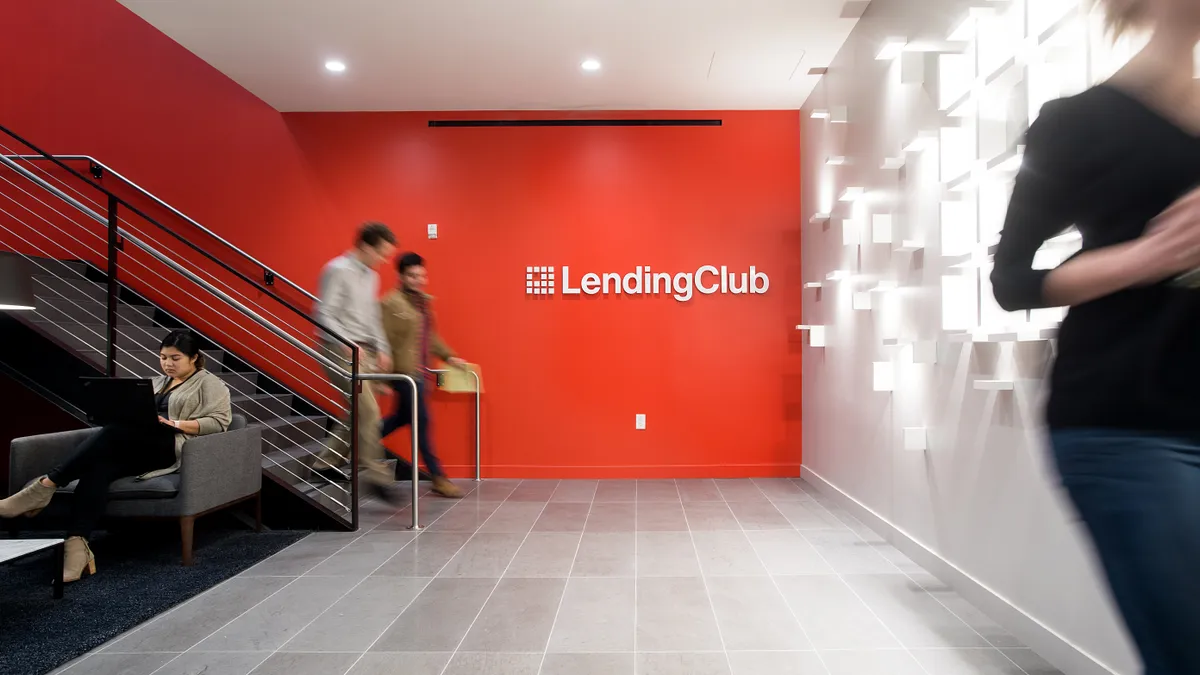LendingClub wanted a quicker route to becoming a bank, so it opened up its wallet and decided to buy one.
The online credit marketplace announced Tuesday it is buying Boston-based Radius Bank in a cash-and-stock transaction valued at $185 million. The fintech, which had been mulling various paths to a banking charter for the last year, says acquiring the online bank will provide greater regulatory clarity and cheaper funding for its loans.
Industry experts say the deal could be a tipping point, paving the way for more fintechs to make their own bank purchases.
"Fintechs are no longer on the backbenches, where they’ve perfected customer experience, but are now taking significant steps to become more central players in customer financial journeys," said Jake Levant, vice president of marketing at customer experience platform Lightico, adding the deal should come as no surprise to the financial services industry.
"This is a snowball effect that we will continue to see: first micropayments, then checking, then investment — the list goes on," he told Banking Dive. "If legacy banks do not put an emphasis on customer-facing digital and mobile tools — they’ll not only fail to grow but lose out entirely."
With the unbundling and rebundling in fintech, "Everyone's becoming a bank," Sam Maule, managing partner for North America at fintech consultancy 11:FS, told Banking Dive.
"Even challenger banks are becoming more and more bank-like, so I could see more companies taking this route," he added.
While LendingClub spends what it estimates will be the next 12-15 months working to secure regulatory approval for the deal, Lane Martin, a partner in the banking practice at the consulting firm Capco, says fintechs would be wise to observe how the deal plays out before making similar moves.
"I expect that there's going to be some others who venture into this realm after LendingClub took the plunge," Martin told Banking Dive. "But I do think that there's going to be significant advantage to wait and see what happens as a result of this — the process they go through — because they're going to learn a lot on this journey."
The deal, if approved, will come with a series of factors that go beyond the surface level appeal of the transaction, Martin said.
"Everybody's citing the lower cost of capital and the ability to offer more products to customers," Martin said. "Those things are so logical and obvious that people think, 'Why wouldn't this happen before?' My reaction is, there's actually a lot of complexity that comes into running a regulated entity and the costs and the constraints of running a regulated entity colliding with how a fintech runs its business."
Martin said the challenges will lie in how successfully the two companies can merge their divergent operating models.
"When you think about how banks run and when you think about how fintechs run, they have been designed to run a little bit different from one another, intentionally," he said.
Martin said LendingClub will also have to contend with the regulatory constraints that come with a bank charter, such as liquidity requirements and stress testing.
"There are a lot of regulations that involve actually running an FDIC-insured business. It will add a lot of overhead to their existing operating model," he said. "There would be a lot more robust products out there from financial institutions if they were not as heavily regulated as they are. If you didn't have to embed a controls process into everything that you provision to a customer so they can be approved to a regulator, you're entering a new arena when you do this."
Regulatory hurdles and integration challenges aside, Maule believes LendingClub paid a fair price for the online bank.
"I think this is a good acquisition for both sides," he said. "$185 million is not a ton of money for what they're doing."
Maule said the acquisition also plays into LendingClub's key strengths.
"Being able to hold deposits, they're basically coming full circle. LendingClub's getting a couple of great things as part of this acquisition. Radius has gone all-in on digital, they've done the [banking-as-a-service] model, and, for example [corporate credit card startup] Brex uses them on the backend," he said. "My advice to LendingClub right now is to stay on the lending side of things. You can hold both sides of the table because you're holding deposits."
On getting the green light from regulators, Maule said he doesn’t expect LendingClub will encounter any unexpected challenges, noting that the company is not a startup, but a fintech with a 15-year history.
"They're well-established, they're a massive lender in the U.S., so I don't see any issue with them getting regulatory approval, even if it will likely take 12-15 months," he said.
Following the company’s announcement, LendingClub CEO Scott Sanborn said the company is taking a careful approach as it looks to gain regulatory approval.
"It's not every day that an entity generating more than $12 billion in loans a year seeks to acquire a bank, and we start the formal regulatory approval process with a collaborative spirit and cautious optimism," he told analysts.
LendingClub’s news comes as other fintechs pursue their own paths to a bank charter.
Last week the FDIC approved challenger bank Varo Money’s application to provide deposit insurance, and fintech Square, as well as Japanese online merchant Rakuten, have pending applications to establish industrial loan companies, which aren’t regulated by federal banking agencies.
Other fintechs, however, may not view the bank charter approach in the same light.
Stock-trading app Robinhood doubled back on its bank charter ambitions after it announced in November that it pulled its application with the Office of the Comptroller of the Currency after filing for one in April.
And Chime, which says it has more than 8 million users, recently extended its banking services agreement with The Bancorp Bank, a sign the charter approach may not be part of the digital bank’s plan for the near future.






















